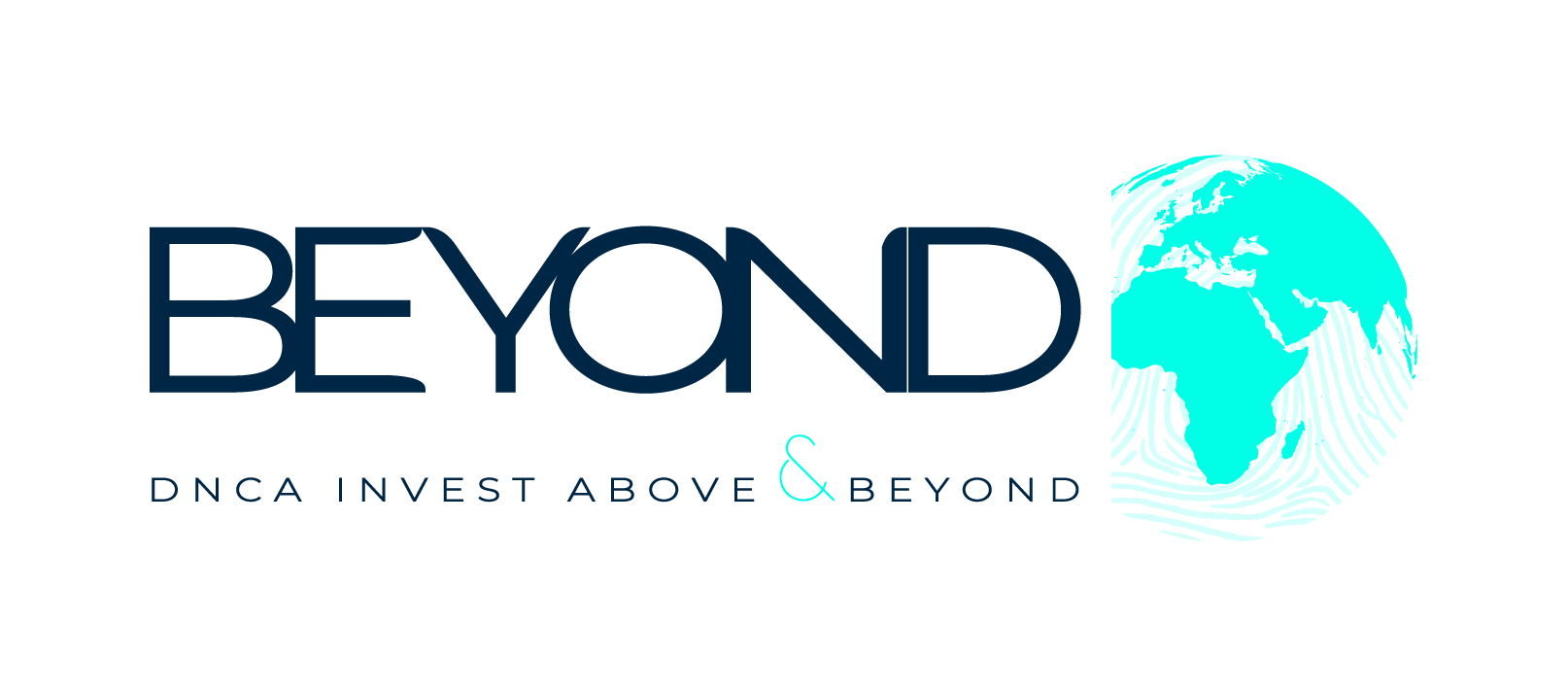Socially Responsible Investing (SRI) is a multi-faceted and constantly changing concept. It lies at the junction between the expectation of returns and the expectations of society. SRI naturally focuses on long-term performance, factoring in all the risks and opportunities to which businesses are exposed. We strongly believe that sustainable development must be one of the main criteria used to identify the leaders of the future. ESG (environmental, social and governance) criteria lie alongside financial analysis at the heart of SRI. They also create value in themselves.
We aim to offer an innovative and exclusive approach which will adapt to cover new factors as they emerge. Consequently, our Responsible Investor policy distinguishes between two concepts: Corporate Social Responsibility (CSR) and the Transition to a Sustainable Economy. This is the result of an in-depth analysis of economic and social trends combined with recognized expertise in SRI.
Eric Franc, CEO

Léa Dunand-Chatellet, Fund Manager, Head of the Responsible Investment department
SHAREHOLDERS
- Protection of the interests of minority shareholders
- Independence of the Board and its committees
- Accounting risks
- Management quality
- CEO remuneration
- Quality of financial communications
RESPONSIBILITY
- Environmental management
- Regulation and certification
- Climate policy and energy efficiency
- Politique climat et efficacité énergétique
- Biodiversity impact and externalities
RESPONSIBILITY
- Company culture and HR management
- Personnel-management relations and working conditions
- Health and safety
- Attractiveness and recruitment
- Training and career management
- Promotion of women
RESPONSIBILITY
- Product quality, safety and traceability
- Supply chain management
- Respect for local communities and human rights
- Innovation capacity
- Customer satisfaction
- Data privacy
- Corruption and business ethics
- Fiscal coherence
We believe it is vital to take a long-term view when financing the economy. As responsible fund managers, our role is to select the companies that are best placed, both strategically and economically, to meet the challenges of the future. We are convinced that the ability of these businesses to foresee developments in their markets is crucial to establishing or maintaining leadership.
The sustainable economic transition is overall an opportunist approach. Our work focuses on identifying relevant themes and thereby selecting the companies that are exposed to them. Societal trends evolve constantly, and we therefore review our list of themes each year. By taking a practical and innovative approach, we aim to maintain the most complete understanding possible of performance drivers.
TRANSITION
- Inclusion of seniors
- Inclusion of emerging populations (BoP)
- Access to education
- Access to housing and comfort
- Security
- Public transport, regulation of traffic
- Home services
TRANSITION
- Healthy eating, sport
- Medical diagnostics
- Fight against endemic diseases
- Caregiving
- Medical Robotics
- Access to healthcare (BoP)
- Medicine and cutting-edge medical research
TRANSITION
- Infrastructure development
- Transition to digital communication
- Certification, quality and traceability of products
- Efficient logistics
- Sustainable tourism
- Network access
- Flow transparency and security
- Access to financial services
TRANSITION
- Product lifecycle lengthening
- Eco-design
- Production equipment efficiency
- Circular economy
- Collaborative consumption
- Digitization
- Artificial intelligence
- Sustainable mobility
TRANSITION
- Energy storage
- Renewable energy
- Energy efficiency
- Water treatment
- Recycling
- Biodiversity
- Sustainable agriculture
- Ecological mobility

Our SRI funds are grouped together in the “Beyond” range. We ensure we select responsible, sustainable stocks by including ESG criteria when analysing companies, defining the investment universe and then picking stocks for the portfolio. The same two-stage management process is used for all “Beyond” funds:
- Stocks which present corporate responsibility risks are excluded. This filter complies with the government-backed SRI label.
- Stocks are picked for the positive impact they have on the transition to a sustainable economy.
We aim to offer as much transparency as possible regarding Corporate Responsibility and the Transition to a Sustainable Economy. We are committed to sharing our expertise in this domain, where standards are still being set and the path of future development is not clearly defined.
Consequently, measuring impacts and reporting specific indicators is a priority, especially for SRI portfolios. There are numerous obstacles, mainly relating to the definition of criteria and their relevance, and data access and reliability. It is nevertheless vital at this stage for us to actively contribute to developments in this area.









